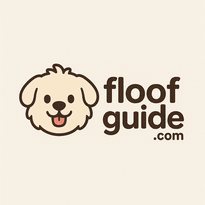Does your adorable French Bulldog constantly scratch, lick, or chew? You're not alone! Frenchies are notorious for their sensitive skin and digestive systems. Food allergies are a common culprit. Finding the right dog food can make a world of difference. Let's dive into how to help your Frenchie find relief.
Understanding Frenchie Allergies
French Bulldogs are prone to allergies for a few reasons, including their breed predisposition and unique physiology.
Common Allergy Triggers
Knowing what to avoid is the first step in managing your Frenchie's allergies. Here are some frequent offenders:
- Proteins: Beef, chicken, dairy, and eggs are common culprits.
- Grains: Wheat, corn, and soy can cause issues for some Frenchies.
- Artificial Additives: Colors, flavors, and preservatives can irritate sensitive systems.
- Environmental Allergens: Pollen, dust mites, and mold also contribute to the overall allergy burden.
Recognizing Allergy Symptoms
Keep an eye out for these signs that your Frenchie might be having an allergic reaction:
- Excessive scratching, licking, or chewing (especially paws).
- Skin rashes, hives, or redness.
- Hair loss.
- Ear infections.
- Vomiting or diarrhea.
- Facial swelling (seek immediate veterinary care).
Choosing the Right Dog Food
Selecting the right food is crucial for managing your Frenchie's allergies. Here's what to consider:
Limited Ingredient Diets (LID)
LID foods contain a short list of ingredients, making it easier to identify and avoid allergens. Look for formulas with a single protein source and a limited number of carbohydrates.
- Examples: Lamb and rice, salmon and potato, or duck and pea.
Novel Protein Sources
Consider novel protein sources your Frenchie hasn't eaten before. These are less likely to trigger an allergic reaction.
- Options: Venison, duck, rabbit, fish (salmon, whitefish), or even insect-based protein.
Grain-Free vs. Grain-Inclusive
While grain-free diets were once all the rage, current research suggests that they may be linked to heart problems in some dogs. Talk to your vet to decide if grain-free is right for your Frenchie. If you choose to include grains, opt for easily digestible options like:
- Oats
- Brown rice
- Quinoa
Important Ingredients to Look For
Beyond avoiding allergens, look for ingredients that support skin health and digestion:
- Omega-3 Fatty Acids: Found in fish oil or flaxseed, they help reduce inflammation and promote healthy skin.
- Probiotics: These beneficial bacteria support a healthy gut microbiome and aid digestion.
- Prebiotics: These feed the probiotics, further enhancing gut health.
Tips for Transitioning to a New Food
Switching dog foods abruptly can upset your Frenchie's stomach. Follow these tips for a smooth transition:
- Mix it up: Gradually introduce the new food by mixing it with the old food over 7-10 days. Start with a small amount of the new food and gradually increase the proportion.
- Monitor closely: Watch for any signs of digestive upset, such as vomiting, diarrhea, or loss of appetite.
- Consult your vet: If you're unsure about which food is best for your Frenchie, or if they have severe allergies, consult your veterinarian for personalized recommendations.

